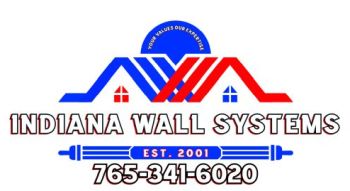Introduction
As concerns about climate change and energy consumption grow, the demand for energy-efficient building solutions has never been higher. In this context, Exterior Insulation and Finish Systems (EIFS) have emerged as a popular choice for builders, architects, and homeowners alike. In this comprehensive article, we will explore the untold truth about EIFS energy efficiency, highlighting its advantages and addressing common misconceptions.
What is EIFS?
Exterior Insulation and Finish Systems (EIFS) is a non-load bearing cladding system that combines insulation, air and water barriers, and a durable finish. EIFS is composed of several layers, including a foam insulation board, a reinforced base coat with embedded fiberglass mesh, and a textured finish coat. Together, these layers create a continuous insulation system that envelops the entire building envelope, preventing thermal bridging and contributing to energy efficiency.
History of EIFS
EIFS was first developed in Europe during the post-World War II reconstruction period. As a solution to material shortages and the need for rapid construction, EIFS offered a lightweight, versatile, and energy-efficient alternative to traditional building materials. The system gained popularity in North America during the 1970s energy crisis and has since become a mainstay in both residential and commercial construction.
The Science behind EIFS Energy Efficiency
One of the main reasons why EIFS is so energy-efficient is its ability to prevent thermal bridging. Thermal bridging occurs when heat is transferred through the building envelope via materials with high thermal conductivity, such as metal or concrete. EIFS combats thermal bridging by wrapping the building with continuous insulation, thus reducing heat transfer and lowering energy consumption.
How EIFS Improves Building Envelope Performance
A building’s envelope is the primary barrier that separates its interior from the outdoor environment. EIFS improves envelope performance by offering:
- Continuous insulation: EIFS ensures that insulation covers the entire building envelope, eliminating thermal bridging and providing a higher level of energy efficiency.
- Air barrier: The EIFS layers work together to create an effective air barrier, preventing drafts and helping maintain consistent indoor temperatures.
- Water-resistive barrier: Properly installed EIFS includes a water-resistive barrier that protects the building structure from moisture infiltration, which can lead to mold and other damage.
Energy Savings with EIFS
EIFS can significantly reduce a building’s energy consumption. By providing superior insulation and reducing air infiltration, EIFS minimizes heat loss in winter and heat gain in summer. Studies have shown that buildings with EIFS can save up to 45% on heating and cooling costs compared to traditional construction methods.
The Role of EIFS in Green Building Certifications
EIFS can contribute to achieving green building certifications, such as LEED (Leadership in Energy and Environmental Design) and ENERGY STAR. These certifications recognize buildings that demonstrate exceptional energy efficiency, environmental stewardship, and occupant health and comfort.
EIFS and Indoor Air Quality
EIFS contributes to improved indoor air quality by reducing drafts and maintaining consistent temperatures. This helps prevent condensation and mold growth, which can lead to respiratory issues and other health problems.
The Versatility and Aesthetics of EIFS
In addition to its energy efficiency benefits, EIFS offers versatility in design and aesthetics. The system can be applied to a wide range of building types and architectural styles, and the finish coat can be customized to achieve various textures and colors.
Common Misconceptions about EIFS
Despite its numerous advantages, EIFS has faced some misconceptions:
- Moisture problems: Some early EIFS installations experienced moisture-related issues, but these were often due to improper installation or inadequate maintenance. Modern EIFS systems include a water-resistive barrier and proper detailing to ensure moisture protection.
- EIFS and structural strength: While EIFS is not a structural component, it does not compromise a building’s structural integrity when installed correctly. In fact, EIFS can even enhance a building’s durability by providing protection against moisture and temperature fluctuations.
- Fire safety concerns: EIFS materials are non-combustible and have passed stringent fire safety tests. When combined with fire-resistant building components, EIFS-clad buildings meet or exceed fire safety codes.
Tips for Choosing an EIFS Contractor
To ensure the best results and long-lasting energy efficiency benefits, it’s crucial to work with an experienced EIFS contractor. When selecting a contractor, consider the following:
- Experience and expertise: Look for a contractor with a proven track record of successful EIFS installations and a thorough understanding of the system’s components and installation requirements.
- Certifications and affiliations: Seek out contractors with certifications or affiliations from reputable industry organizations, such as the EIFS Industry Members Association (EIMA) or the Association of the Wall and Ceiling Industry (AWCI).
- References and reviews: Request references from previous clients and read online reviews to assess the contractor’s quality of work and customer satisfaction.
Conclusion
The untold truth about EIFS energy efficiency is that this innovative cladding system offers numerous advantages beyond energy savings. With its ability to prevent thermal bridging, improve building envelope performance, and contribute to green building certifications, EIFS is a valuable solution for those seeking a sustainable, energy-efficient, and aesthetically pleasing building option. By dispelling common misconceptions and selecting an experienced EIFS contractor, you can enjoy the long-lasting benefits of this versatile system for years to come.
